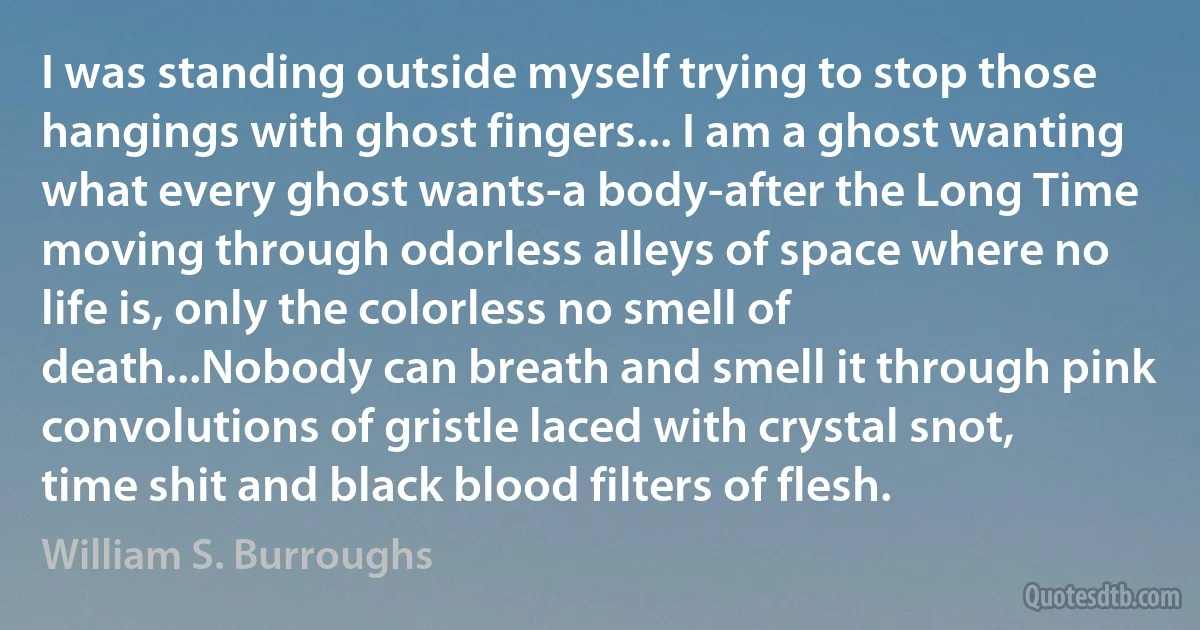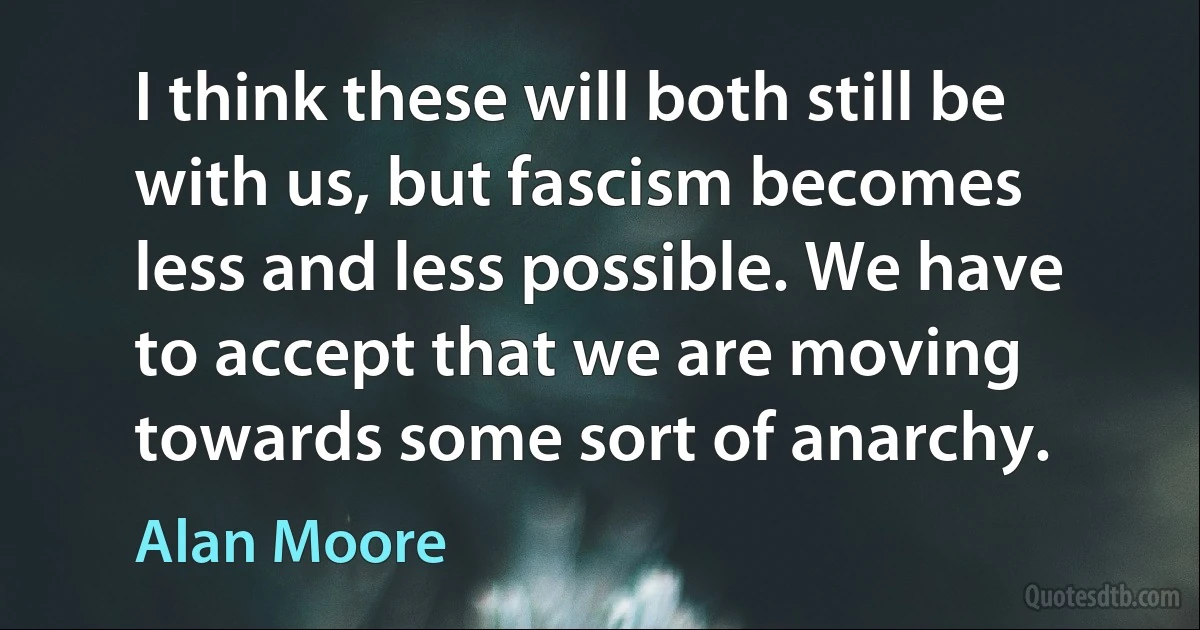Moving Quotes - page 55
The infinite and uncreated spirit that we usually call GOD, a substance of the highest virtue and excellency, produced everything else by emanative causality. God thus is the primary substance, the rest, the secondary; if the former created matter with a power of moving itself, he, the primary substance, is still the cause of that motion as well as of the matter, and yet we rightly say that it is matter which moves itself. "We may define this kind of spirit we speak of to be a substance indiscernible, that can move itself, that can penetrate, contract, and dilate itself, and can also penetrate, move, and alter matter," which is the third emanation.

Helena Petrovna Blavatsky
In general, growth is an intrinsic source of change with potentially unintended effects and some subunits are better positioned than others to protect themselves against such effects. Oligarchical tendencies are present in almost all membership-based organizations, such as unions and voluntary associations, and if unchecked, can lead to transformations. Organizations with diffuse goals or innovative leadership are sometimes able to survive the crisis of complementing their original mission by moving onto other goals.

Howard E. Aldrich
I do genuinely believe that the political system is not linear. When it reaches a tipping point fashioned by a critical mass of opinion, the slow pace of change we're used to will no longer be the norm. I see a lot of signs every day that we're moving closer and closer to that tipping point.

Al Gore
Millions of young Americans have graduated from college during the Obama presidency, ready to use their gifts and get moving in life. Half of them can't find the work they studied for, or any work at all. So here's the question: Without a change in leadership, why would the next four years be any different from the last four years?

Paul Ryan
I performed at a show at the MoMA. There was this big dinner there, and I was seated in this hall with the mayor of New York and all these extremely wealthy art-supporting and art-buying people. There was a piece of work hanging in the hall-it was a fan. This fan was supposed to swing by the momentum of its own propeller. So, while we were having dinner, the fan was stopped, and the guy next to me, a curator at P. S.1, said, "Look, this is what art symbolizes today." Like, that piece of art is supposed to be moving, but just to have dinner we've stopped the art. That's what New York is like today. You can't have real art happen in an institution because rich people can make the world stop. The stuff on the street is a lot more interesting.

M.I.A.
McGraw was an improviser, a teacher. He brought much to the game that keeps baseball fresh and suspenseful today-the hit-and-run play, the steal, the squeeze play, the uses of the bunt and the defenses against it. He helped turn the game into a thing of fluid beauty, infielders charging the plate or roaming far from their bases, outfielders moving with each pitch, racing in for base hits before them, backing each other in the outfield, entering the infield itself on rundown plays. Yet when the game changed radically, with the introduction of the livelier baseball, McGraw naturally shifted to a power emphasis, founding his team about such men as George Kelly, Bill Terry, Mel Ott. He knew, too, that the old pitching style of permitting a man to hit a deadened ball because it would then be caught in the big fields had to be changed, and his staffs led the league year after year in strikeouts, in earned-runs.

Arnold Hano



